Differences, Meaning and Benefits between Compressed Natural Gas (CNG) and Liquefied Petroleum Gas (LPG)
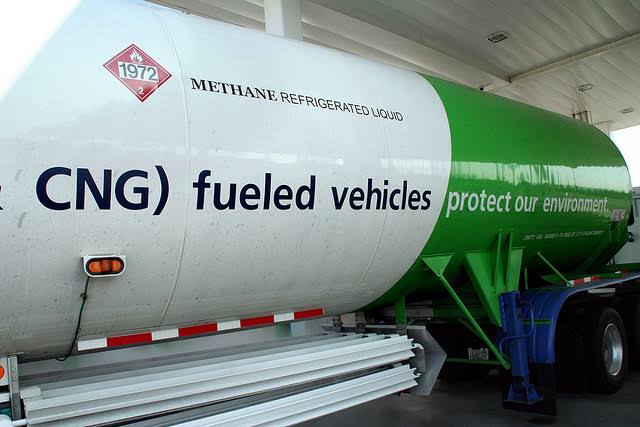
Compressed Natural Gas (CNG) – Meaning
CNG also known as Compressed Natural Gas, is a fuel gas that is mainly composed of Methane. CNG is an eco-friendly gas which is an alternative to gasoline. It is more safer than Gasoline and Diesel, it produces a low carbon emission of about 5-10% lesser CO2 compared to gasoline and diesel powered engines and it is also non-toxic and does not contaminate ground water.
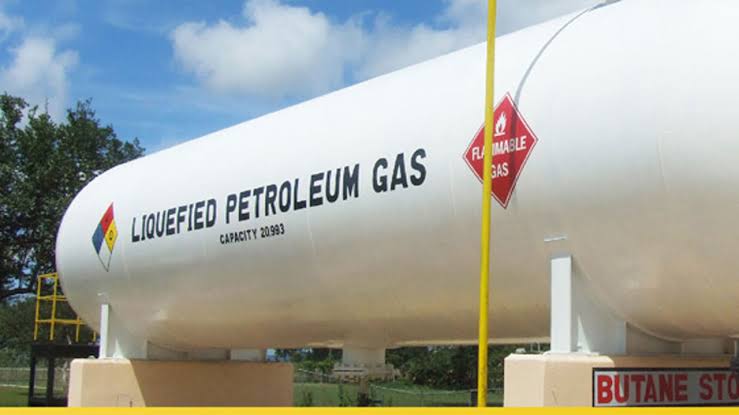
Liquefied Petroleum Gas (LPG) – Meaning
LPG also known as Liquefied Petroleum Gas, is a fuel that is composed of mixtures of different hydrocarbon gases including Propane, Propylene, Butylene, Isobutane and n-butane. LPG is a widely used domestic petroleum products wordwide, it is used as a fuel gas in cooking equipments, heating appliances, power-engine generators, vehicles and other heating mechanical equipments. LPG has several advantages including low carbon emission, can be transported easily through pipelines.
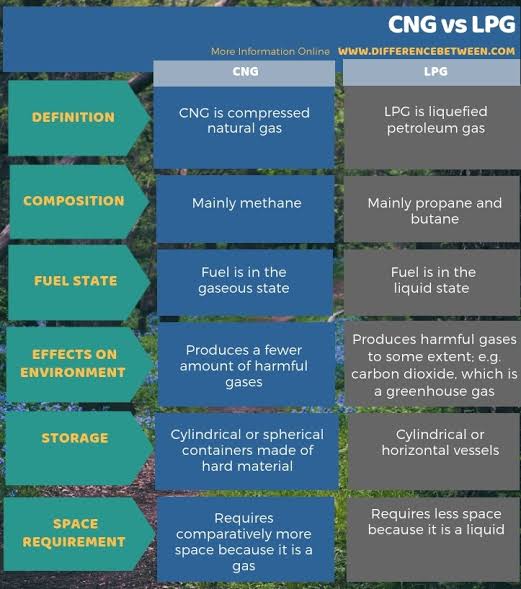
Difference and Benefits between Compressed Natural Gas (CNG) and Liquefied Petroleum Gas (LPG)
1. Compressed Natural Gas (CNG) releases lesser Greenhouse Gas compared to Liquefied Petroleum Gas (LPG). Greenhouse gases are gases that absorbs and emit radiant energy causing greenhouse effects (changes in temperature, changes in snow and rainfall pattern, extreme climate changes which includes intense heat and floods). The primary greenhouse gas includes water vapor, methane, Ozone and Nitrous oxide.
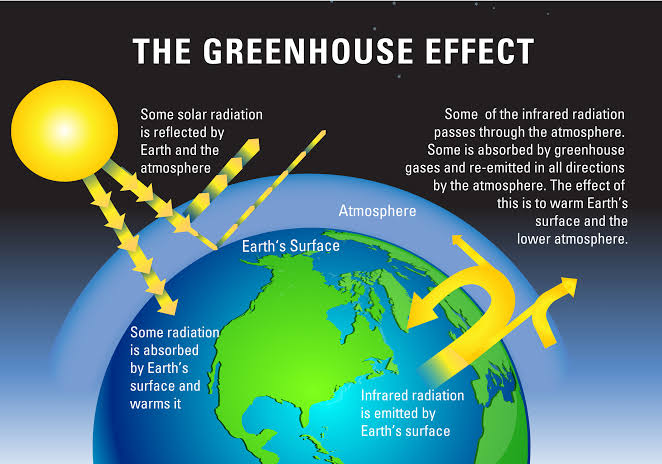
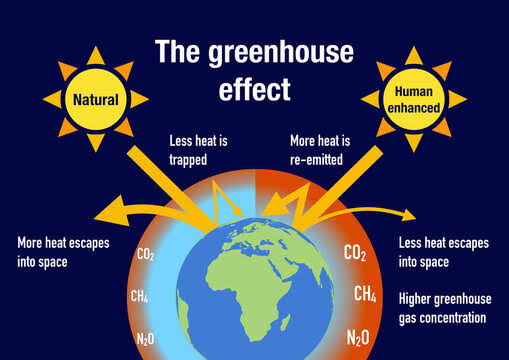
2. Compressed Natural Gas (CNG) is stored and received in gaseous form while Liquefied Petroleum Gas (LPG) is usually in liquid form, it is compressed and cooled at lower temperatures.
3. Compressed Natural Gas (CNG) is lighter than air, while LPG is heavier than air, which means in a case of gas leakage CNG disperses fast in air than LPG.
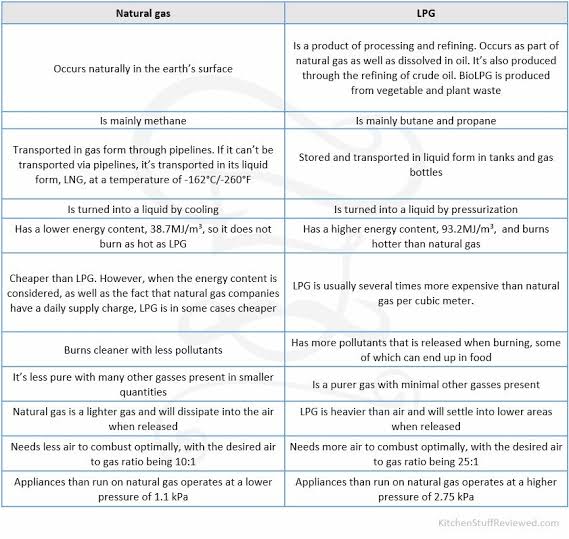
4. In terms of cost effectiveness. Compressed Natural Gas (CNG) is cheaper and cost effective than Liquefied Petroleum Gas (LPG)
5. The primary composition between Compressed Natural Gas (CNG) and Liquefied Petroleum Gas (LPG) is that CNG is primarly composed of Methane (CH4) while LPG is majorly composed of Propane and Butane.
Leave a Comment